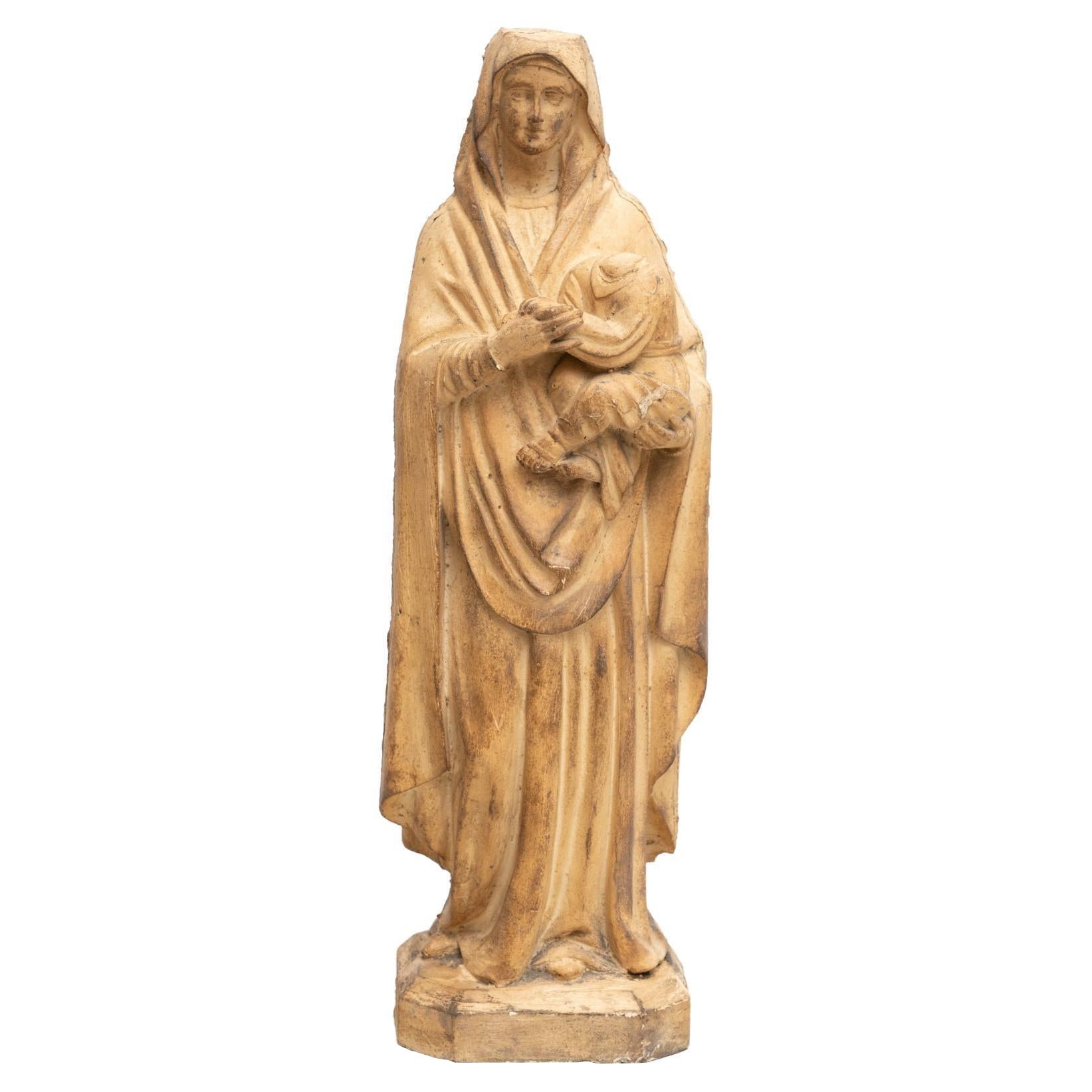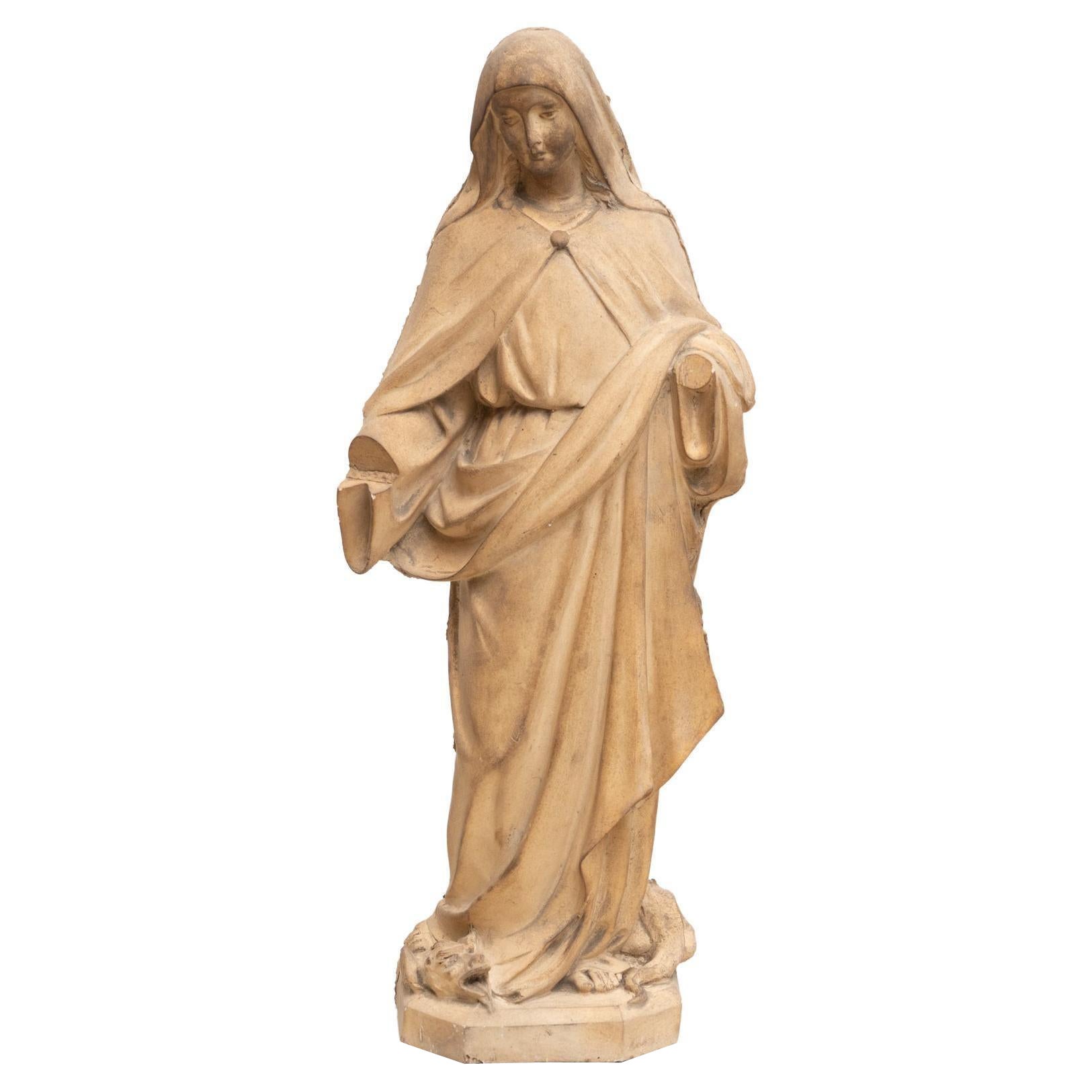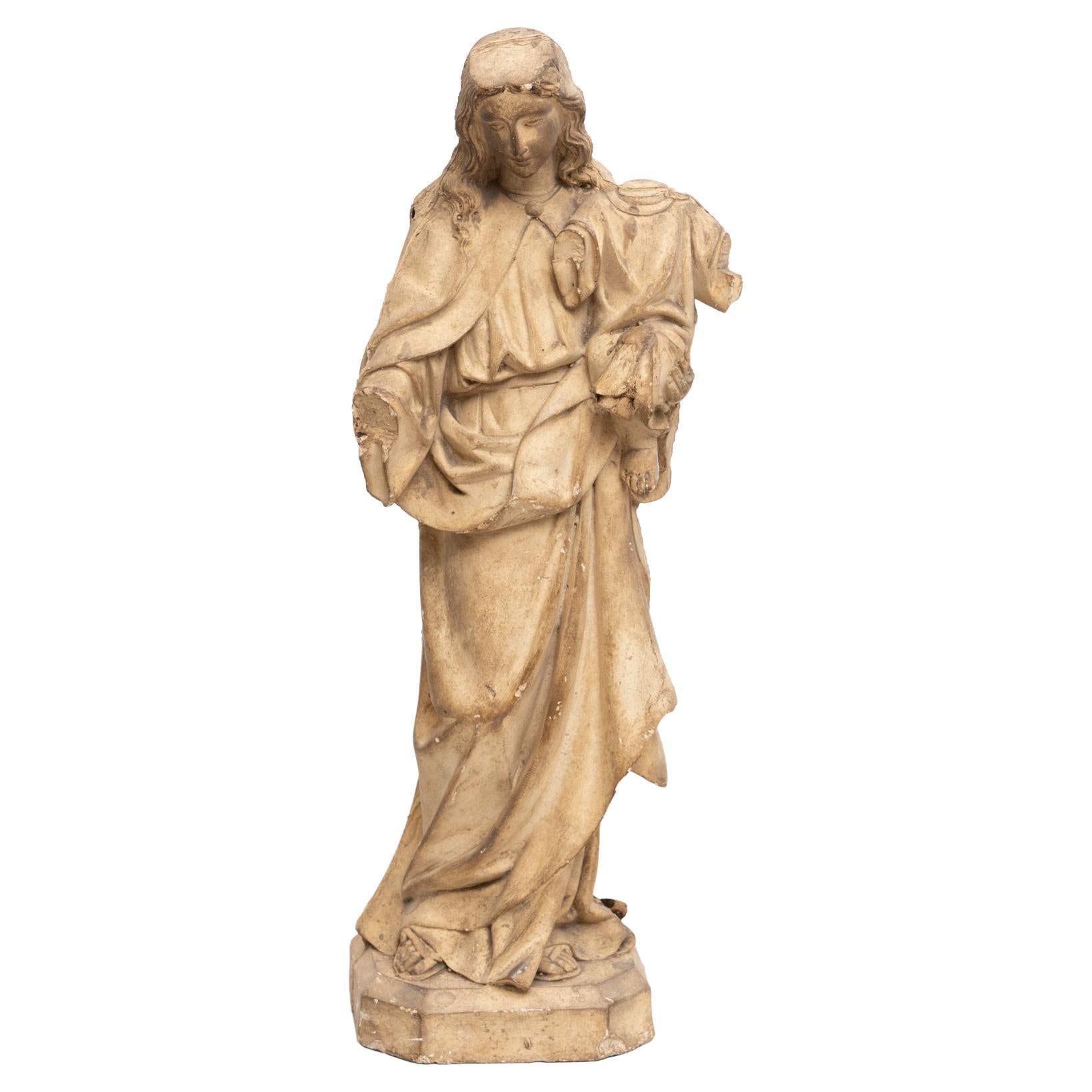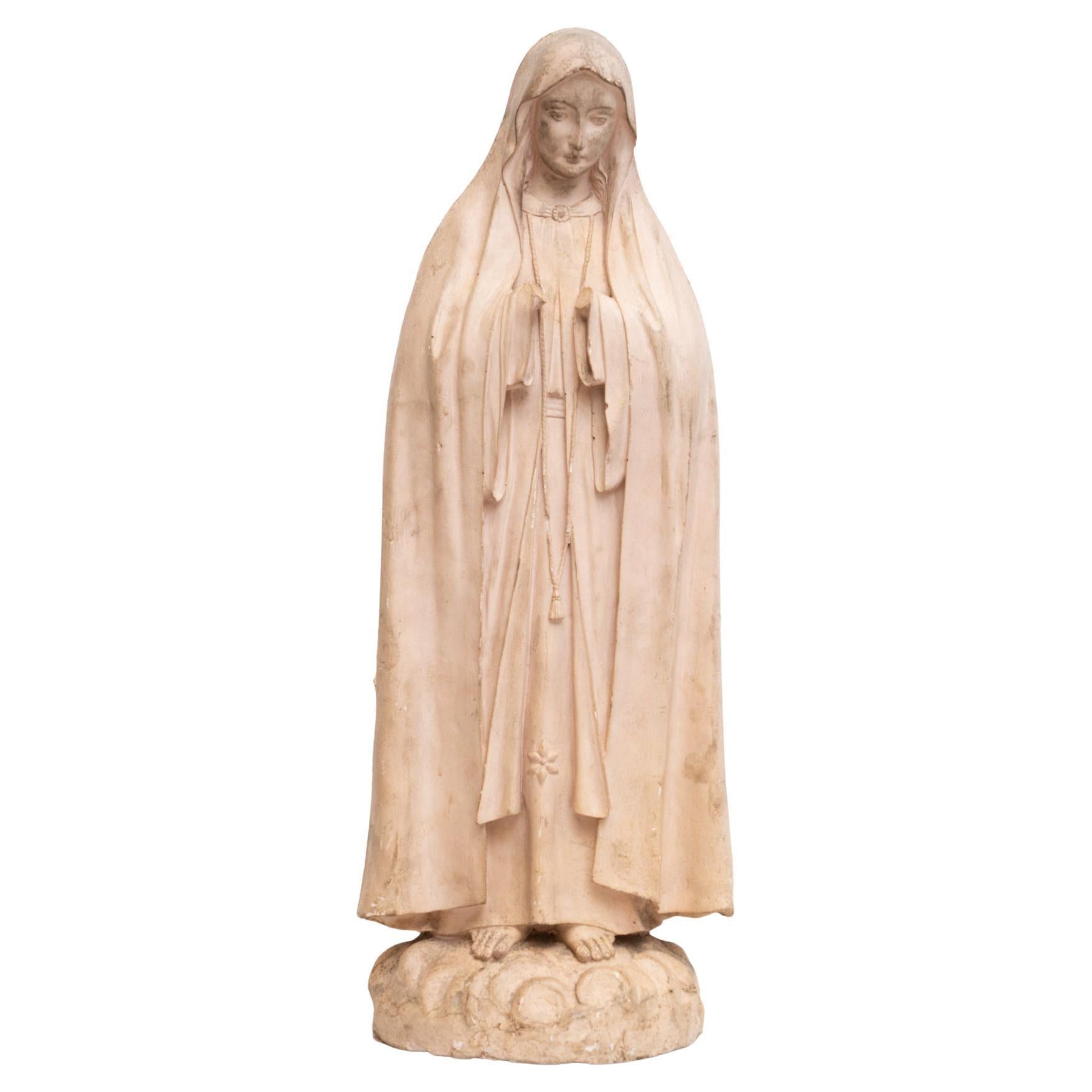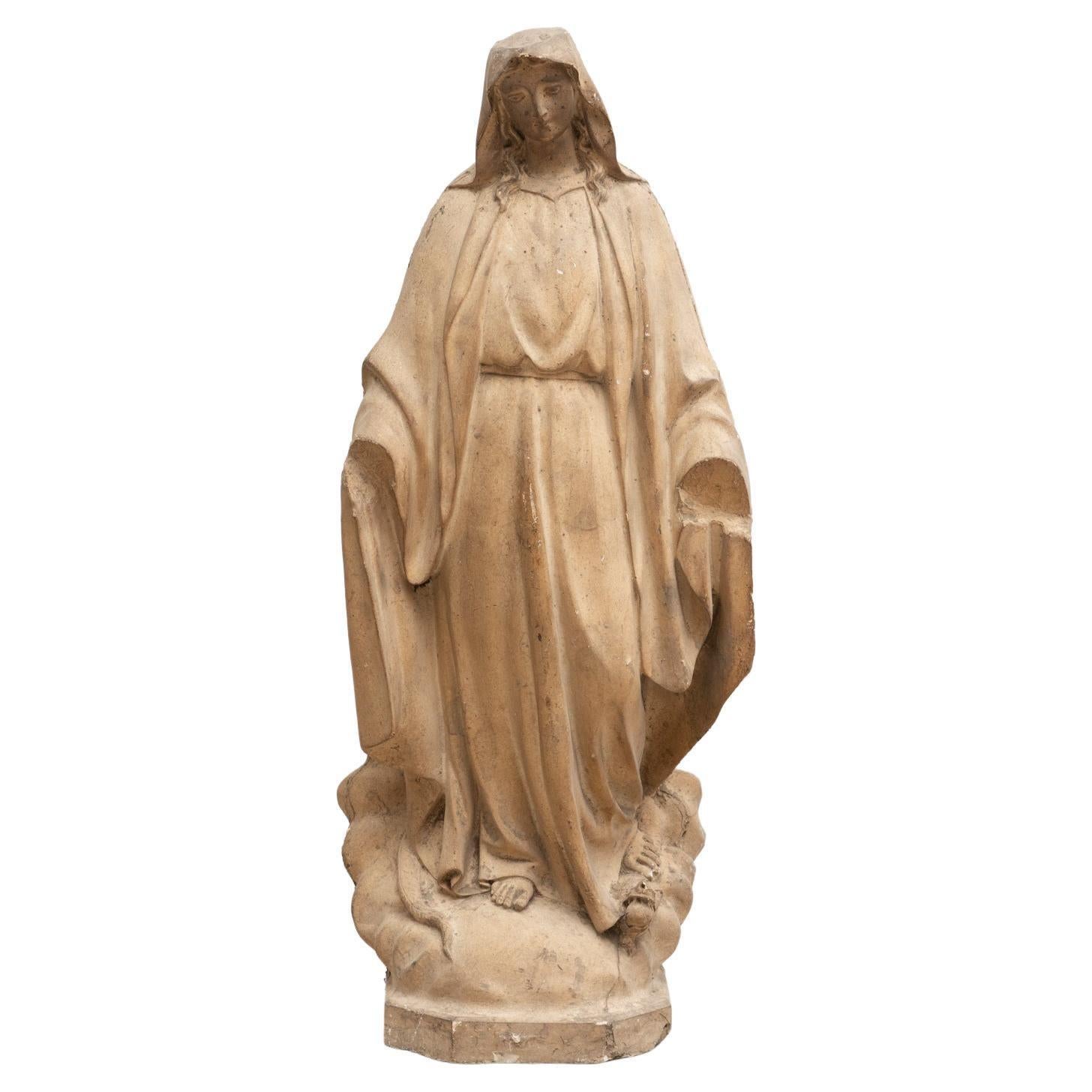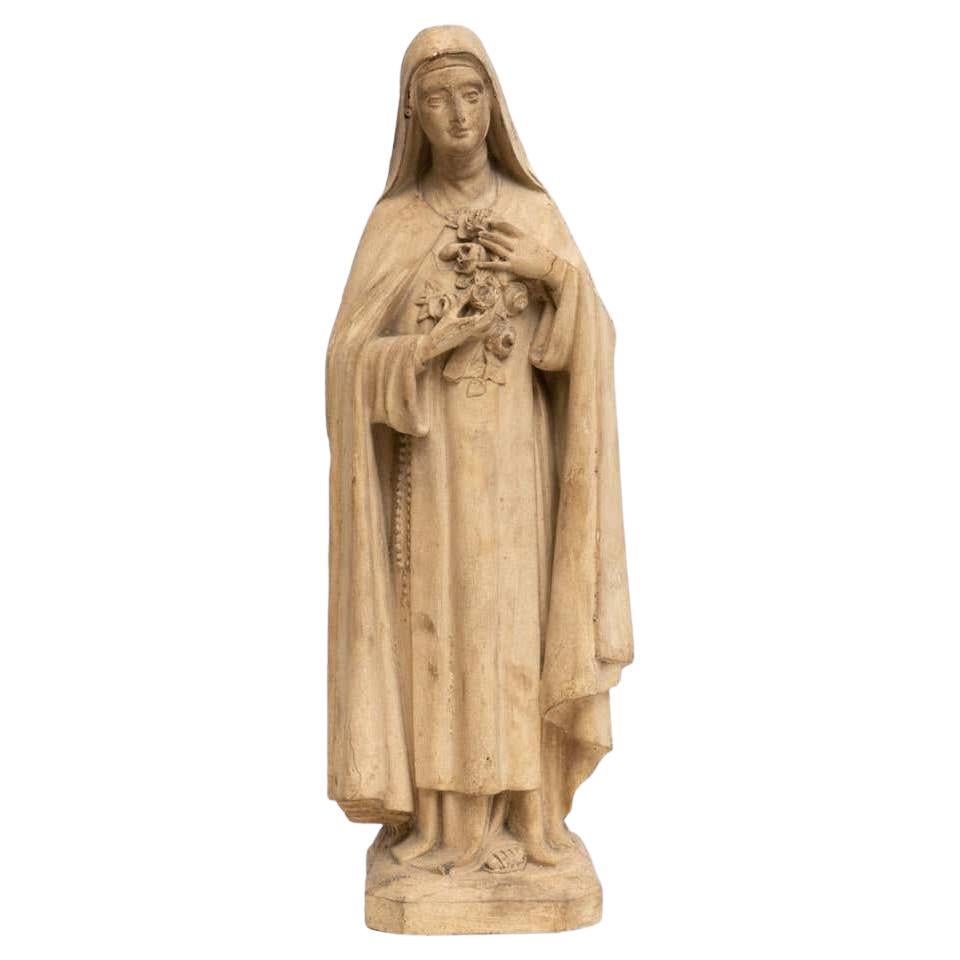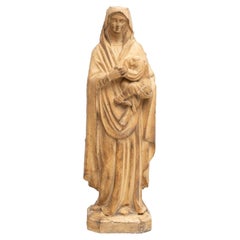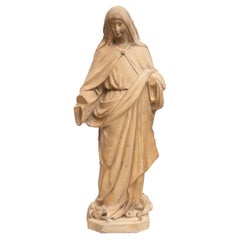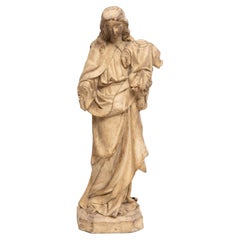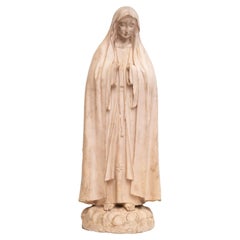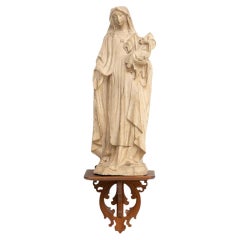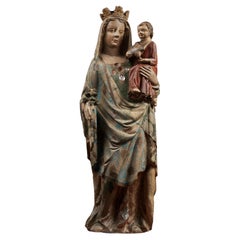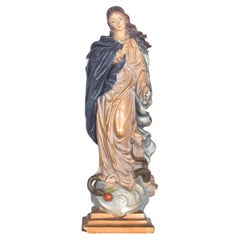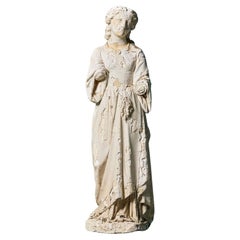Items Similar to Plaster Virgin Traditional Figure, Circa 1950
Want more images or videos?
Request additional images or videos from the seller
1 of 18
Plaster Virgin Traditional Figure, Circa 1950
$754.36
£557.64
€630
CA$1,025.98
A$1,149.61
CHF 598.41
MX$14,063.67
NOK 7,595.76
SEK 7,174.10
DKK 4,797.14
Shipping
Retrieving quote...The 1stDibs Promise:
Authenticity Guarantee,
Money-Back Guarantee,
24-Hour Cancellation
About the Item
Traditional religious plaster figure of a virgin. Made in traditional Catalan atelier in Olot, Spain, circa 1950. In original condition, with minor wear consistent with age and use, preserving a beautiful patina. Materials: plaster.
- Dimensions:Height: 22.05 in (56 cm)Width: 7.09 in (18 cm)Depth: 5.91 in (15 cm)
- Style:Modern (In the Style Of)
- Materials and Techniques:
- Place of Origin:
- Period:
- Date of Manufacture:1950-1959
- Condition:Wear consistent with age and use.
- Seller Location:Barcelona, ES
- Reference Number:Seller: RT.24.01.23.GB.1121stDibs: LU9677240899952
About the Seller
5.0
Platinum Seller
Premium sellers with a 4.7+ rating and 24-hour response times
1stDibs seller since 2024
106 sales on 1stDibs
Typical response time: 8 hours
- ShippingRetrieving quote...Shipping from: Barcelona, Spain
- Return Policy
Authenticity Guarantee
In the unlikely event there’s an issue with an item’s authenticity, contact us within 1 year for a full refund. DetailsMoney-Back Guarantee
If your item is not as described, is damaged in transit, or does not arrive, contact us within 7 days for a full refund. Details24-Hour Cancellation
You have a 24-hour grace period in which to reconsider your purchase, with no questions asked.Vetted Professional Sellers
Our world-class sellers must adhere to strict standards for service and quality, maintaining the integrity of our listings.Price-Match Guarantee
If you find that a seller listed the same item for a lower price elsewhere, we’ll match it.Trusted Global Delivery
Our best-in-class carrier network provides specialized shipping options worldwide, including custom delivery.More From This Seller
View AllPlaster Virgin Traditional Figure, circa 1950
Located in Barcelona, ES
Traditional religious plaster figure of a virgin. Made in traditional Catalan atelier in Olot, Spain, circa 1950. In original condition, with minor wear consistent with age and use...
Category
Vintage 1950s Spanish Modern Religious Items
Materials
Plaster
Plaster Virgin Traditional Figure, circa 1950
Located in Barcelona, ES
Traditional religious plaster figure of a virgin. Made in traditional Catalan atelier in Olot, Spain, circa 1950. In original condition, with minor wear consistent with age and use...
Category
Vintage 1950s Spanish Modern Religious Items
Materials
Plaster
Plaster Virgin Traditional Figure, circa 1950
Located in Barcelona, ES
Traditional religious plaster figure of a virgin. Made in traditional Catalan atelier in Olot, Spain, circa 1950. In original condition, with minor wear consistent with age and...
Category
Vintage 1950s Spanish Modern Religious Items
Materials
Plaster
Plaster Virgin Traditional Figure, circa 1950
Located in Barcelona, ES
Traditional religious plaster figure of a virgin. Made in traditional Catalan atelier in Olot, Spain, circa 1950. In original condition, with minor wear consistent with age and...
Category
Vintage 1950s Spanish Modern Religious Items
Materials
Plaster
Large Plaster Virgin Traditional Figure, circa 1950
Located in Barcelona, ES
Traditional religious plaster figure of a virgin. Made in traditional Catalan atelier in Olot, Spain, circa 1950. In original condition, with minor wear consistent with age and...
Category
Vintage 1950s Spanish Modern Religious Items
Materials
Plaster
Plaster Virgin Traditional Figure, circa 1930
Located in Barcelona, ES
Traditional religious signed plaster figure of a virgin. Made in traditional Catalan atelier in Olot, Spain, circa 1930. In original condition, with minor wear consistent with ...
Category
Vintage 1930s Spanish Modern Religious Items
Materials
Plaster
You May Also Like
Plaster Virgin Traditional Figure in a Wooden Altar, circa 1940
Located in Barcelona, Barcelona
Traditional religious plaster figure of a virgin in a wooden altar.
Made in traditional Catalan atelier in Olot, Spain, circa 1940.
In original condition, with minor wear consisten...
Category
Vintage 1940s Spanish Modern Religious Items
Materials
Plaster, Wood
Important 14th Century Polychrome Limestone Virgin from Lorraine
Located in Saint-Ouen, FR
Provenance :
- Kunsthaus Heinrich Hahn, Frankfurt am Main, sale 16, June 17, 1930, lot 16.
- Sotheby's, Amsterdam, Feb. 26, 2006, lot 201.
HISTORIC
Located between Moselle valley and Meuse valley, framed by the Vosges Mountains on the south side and the duchy of Luxembourg on the north side, the duchy of Lorraine is the result of several partitions. It starts with the 9th century when the Carolingian empire is divided, with Lothar 1st inheriting Lotharingia. In 959 this territory was in turn divided in two; Lower and Upper Lotharingia, the latter being the forebear of the duchy of Lorraine. This duchy was under the rule of the Holy Roman Germanic Empire until 1736 when it was absorbed by the kingdom of France.
All along its history the duchy of Lorraine has found itself in the midst of many conflicts. Alliances and feuds marking European history were always particularly sensible in Lorraine where instability was frequent. Because of its geographic position the duchy of Lorraine was also an artistic crossroad.
Hence the duchy of Lorraine becomes from the 13th century onwards an important artistic centre where a particular type of Virgin and Child appears. According to professor J. A. Schmoll the characteristics of Lorraine sculpture burgeon around 1280-1300 in the Aube region. It presents “vigorous volumes, restrained movements, rare but solemn gestures and a strong interiorised and stern expression”. Those Virgins look similar with a wide forehead, a shield- or oval-shaped face, large neck, small lips and a cleft chin.
This model is particularly in favour during the 13th century because of the revival for Marial worship and for the theme of the Virgin and Child. It bears witness to a new religious sensibility with a more intimate vision of religious practice.
DESCRIPTION
The important 14th century Virgin we present to you is one of the most beautiful examples of sculptural art from Eastern France, with her fascinating distant gaze.
Her contrapposto posture is induced by the weight of the child she carries high on her left side. The child has a chubby face framed by blond hair with well defined curls and he wears a long red V-collared tunic from which emerge his feet. The fabric is animated by long folds. The position of the right foot turned to the back is a detail we can notice on several Virgins from Lorraine. He holds a bird that seems to be pecking his thumb.
“The bird /held by the child in his hands/ has been read as a reference to an episode from Christ’s childhood when he has moulded sparrows with clay before giving them life. It appears in the apocryphal gospel of Pseudo-Matthew (ch. 27) and later in the Quran (III, 43, v. 110). However the iconography seems to be more influenced by the concept of Redemption or of Eucharist, the bird symbolising the soul of the Christian about to be redeemed or revitalised.”
Mary wears a long dress with two rock crystal cabochons remaining from the original five. She is covered by a red cloak enriched with old-gold motifs draped as an apron falling in long pleats along her left hip. The relief treatment and the volume of the cloak developing a network of concentric pleats contrast with the the flat pleating of her dress. They nevertheless suggest the curve of her bent right leg.
She wears a floret crown securing a short thin veil carved in very low relief. From it emerges her blond curled hair characteristic of the 13th century. The large face with almond-shaped eyes, straight nose, small lips and cleft chin casts its gaze afar in a fashion typical of 13th century Virgins.
In her right hand she holds a lily flower. In a very refined manner the artist has carved a band on her right ring-finger.
In the back, carefully sculpted, spreads the minutely detailed short veil.
COMPARATIVE STUDIES
This sculpture of great quality presents obvious similarities with Virgins from Lorraine, designated by William Forsythe...
Category
Antique 15th Century and Earlier French Gothic Figurative Sculptures
Materials
Limestone
Sculpture of Lady of Graces, in Plaster
Located in Lisboa, Lisboa
This sculpture of the Lady of Graces, crafted in plaster, exudes elegance and classical beauty. The figure is draped in a flowing blue cloak that gently cascades around her form, add...
Category
Antique Late 19th Century Portuguese Rococo Figurative Sculptures
Materials
Plaster
$704 Sale Price
44% Off
Antique Classical Maiden Plaster Statue
Located in Wormelow, Herefordshire
An antique classical maiden plaster statue dating from the early 20th century suitable for interior use. This piece is a wonderfully distressed statu...
Category
Early 20th Century English Regency Statues
Materials
Plaster
Late 18th Century carved statue of a saint, French
Located in Charlottesville, VA
Late 18th Century carved, off-white polychrome French statue of St. Barbara, the inspiration for Rapunzel.
Category
Antique Late 18th Century French Figurative Sculptures
Materials
Wood
Early 20th Century Hand Carved Wood Plaster Sculpture Of Our Lady Of Monserrat
Located in Guaynabo, PR
A renowned tradition in Latin America and Puerto Rico is the making of Santos de Palos by master carvers since the 19th century. This is an early 20th century wood plaster carving sc...
Category
20th Century American Arts and Crafts Religious Items
Materials
Wood, Plaster
$920 Sale Price
20% Off
